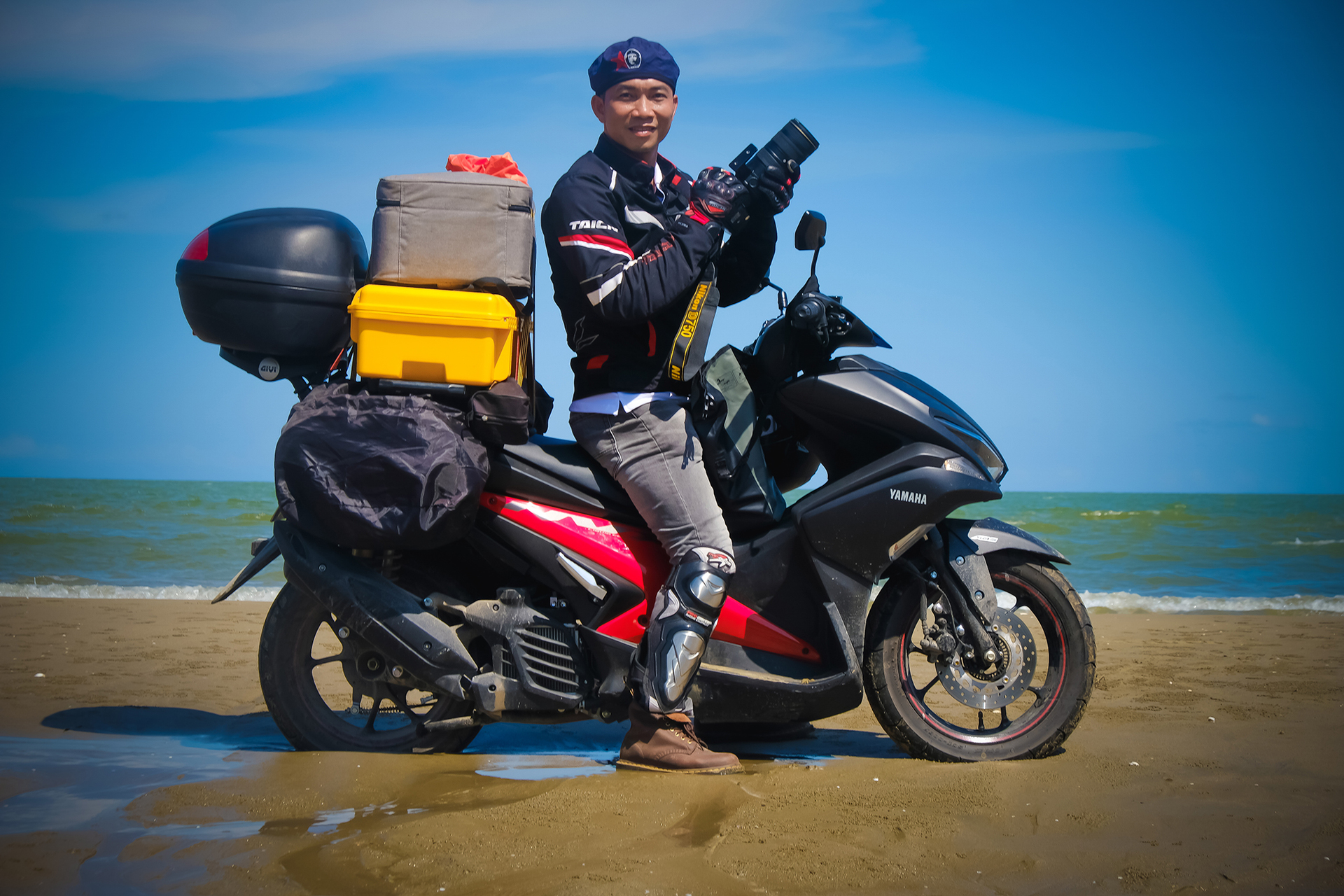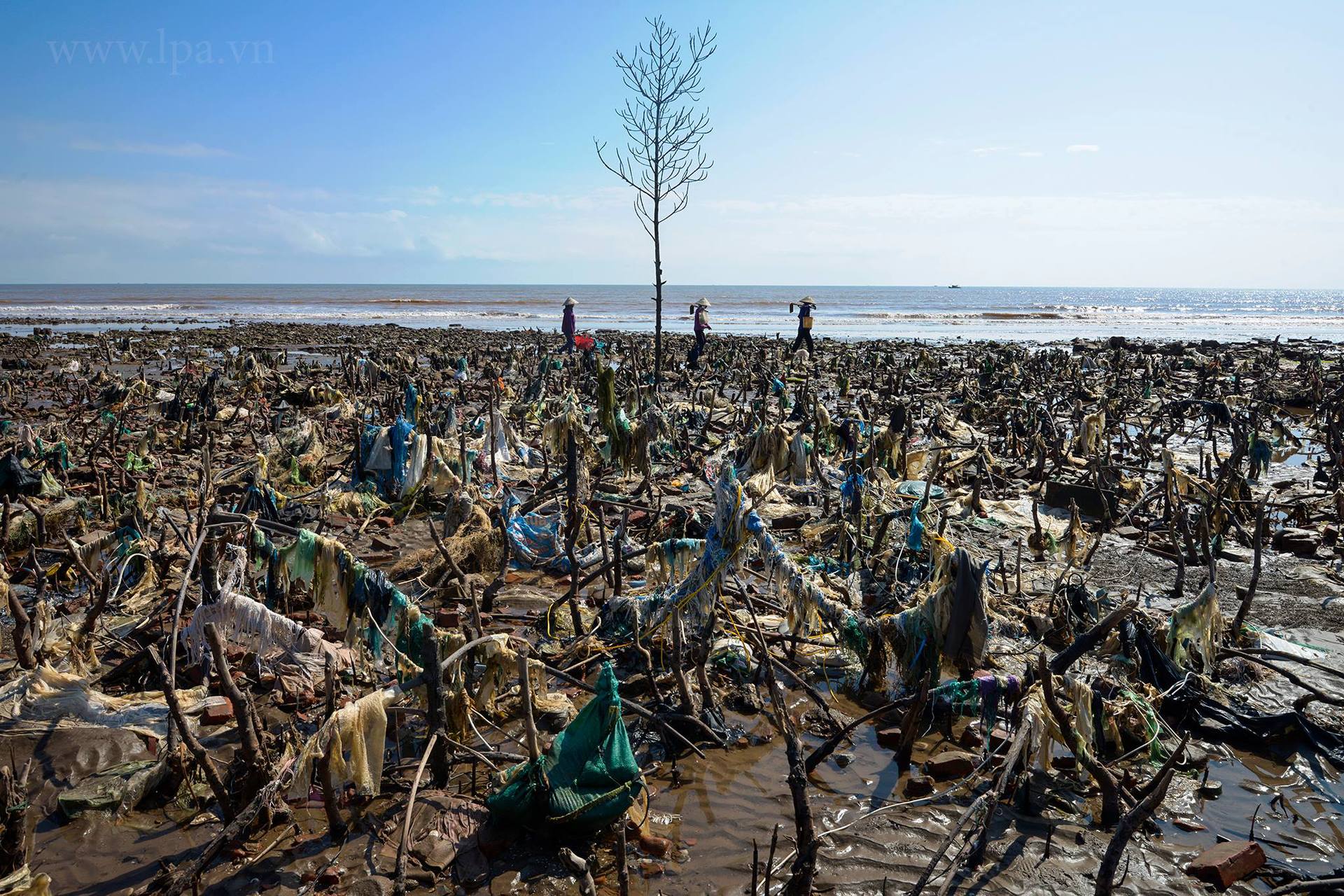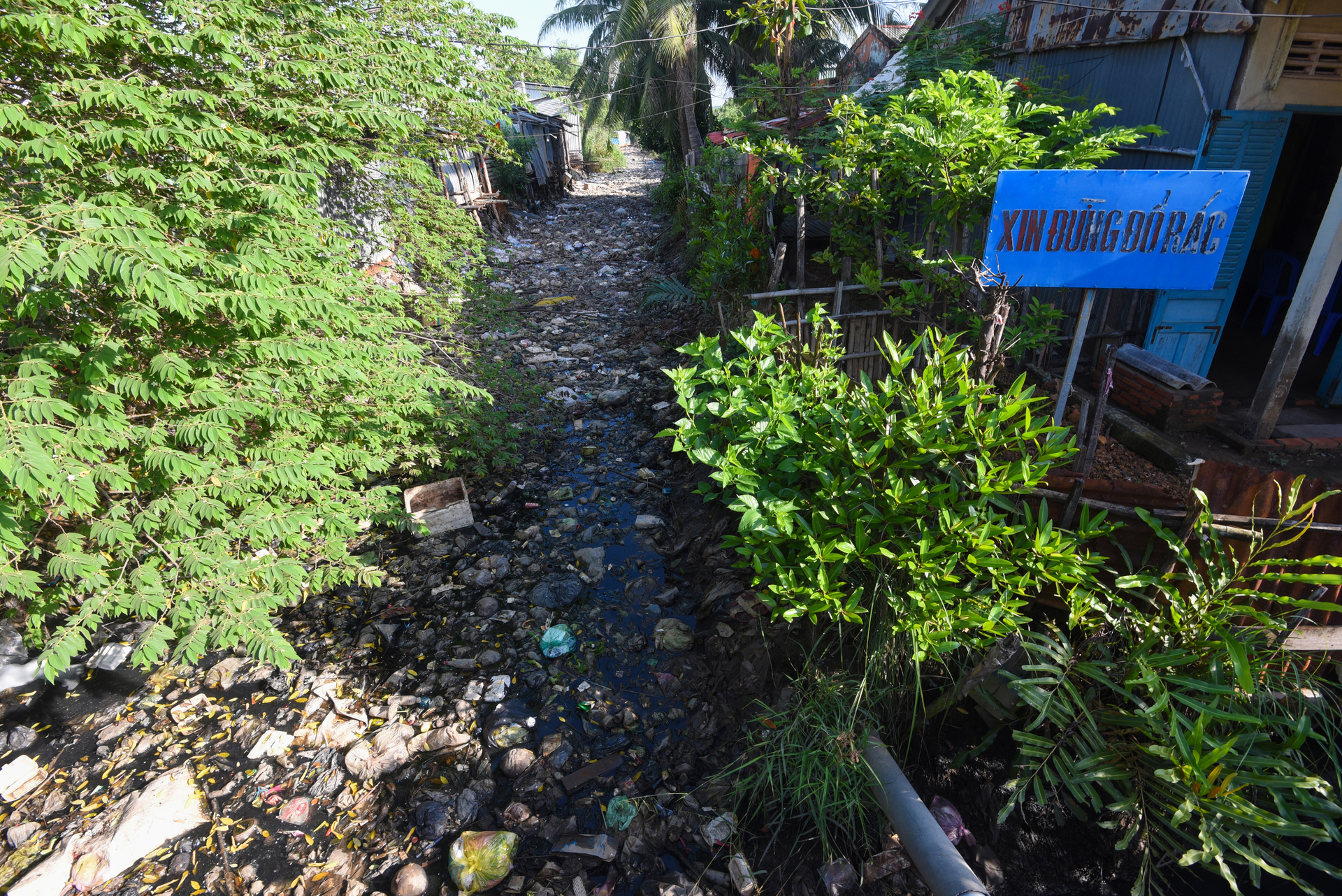Nguyen Viet Hung drove across the length and the breadth of the country's coast to document plastic waste polluting the sea.

In August 2018, Hung, a photographer based in Hanoi, set off from the capital city on a motorbike trip across the country to document how the sea is being trashed so as to raise public awareness of a huge problem.
"For the Save our seas trip, I wanted to capture the most realistic images of the situation of dumping plastic waste in Vietnam. I hope to help everyone understand what is happening and the consequences if we don’t do anything about it ," Hung said. He also wanted to promote the 3 Rs (reduce, reuse, recycle) method in using plastic products.

A beach in Quat Lam District, the northern province of Nam Dinh Province.
The trip allowed Hung to get a direct, comprehensive view of the problem and the importance of saving the environment and the ocean from the hazard of plastic waste.
"The farther I went, the more I realized that the environment in general and marine environment in particular of our country are being seriously destroyed. Most people are not aware of the scale of the problem and this should change," Hung said.
His 43-day "Save Our Seas" trip took Hung to 39 cities and provinces of Vietnam, including 28 coastal cities.
The 3,000 photos he has taken during the trip are a damning indictment of what Vietnam is doing to its own environment.
Why focus on the ugly
When Hung spoke about his trip with his friends, some supported him and others thought it was not worth it.
"Many people asked me why I should stop working and spend money on such a time-consuming, exhausting and even risky trip," Hung told VnExpress. "Many people were surprised that I was going to 'waste time' shooting trash instead of taking photos of the country’s beautiful sceneries.
"However, when you suddenly realize the number of days living in the world is not counted by the duration of time every day, but by doing meaningful things, you will have great motivation."

Trash dumped near the parked boats in the central province of Thanh Hoa.
Hung had spent a year studying documents about the environment pollution relating to plastic waste before starting the trip. He knew that ocean pollution in Vietnam was serious when he set out.
Plastic waste accounts for 50-80 percent of ocean waste, and more than 80 percent of plastics waste originates from the mainland, while the rest is discharged directly in the sea.
A science journal report in 2015 showed that Vietnam ranked fourth among five biggest produces of plastic waste in the world.
Shocked, nevertheless
Although he was equipped with background information about the pollution level in coastal areas, Hung was still shocked at what he got to see.

A beach in Tuy Phong District in the south central province of Binh Thuan.
"I was shocked to see a sea of trash stretching for a kilometer, it seemed unreal. It was a scene that overwhelmed and horrified me, even though I have already seen many heavily polluted places".
He came upon the horrifying scene in the coastal area of Chi Cong Commune, Tuy Phong District in the central province of Binh Thuan.
What Hung saw was a long beach covered with plastic bags, clothes and domestic waste instead of white sand. People were also using the place to urinate and defecate.
"I went to a part of the beach where garbage was piled high. Garbage had not only destroyed the beauty of the beach, it had made it stink, and affected people's living environment. The risk of epidemic outbreaks and infection is very high in these areas," Hung said.
He said dumping garbage into the canal and the sea had become a long-steanding habit among locals. The lack of garbage trucks in the area only exacerbated the problem.
During his journey, Hung frequently encountered hardship and danger. One time, when he raised his camera to capture a truck that was deliberately "building" a new mountain of garbage, he was spoken to rudely, and they threatened to beat him and destroy his camera. He also faced unfriendly faces of the people living on the garbage strewn beaches.

A canal overflows with garbage in the center of Binh Dai District in the Mekong Delta province of Ben Tre.
On the right is a blue board saying "Please don't litter".
Hung's message is simple: "Remember that when you throw garbage into the river and the sea, it is throwing garbage at your meal. The Earth is a single ecosystem and our only ecosystem. We do not have a spare one. We should remember that when we exploit it and poison it. "
Story by Thuy Quynh
Photos by Lekima Hung